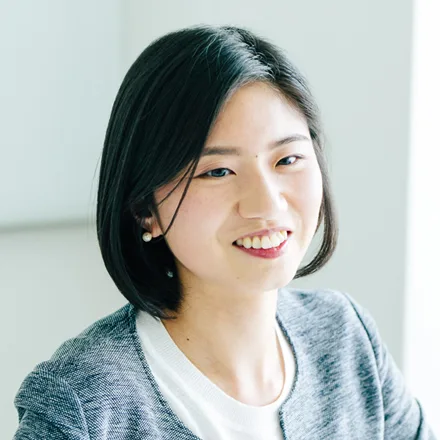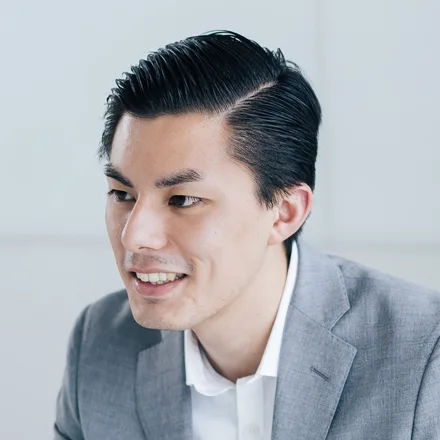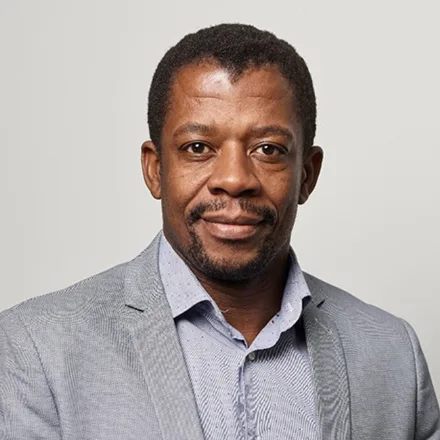STAFF
STORY
Investment Strategy & Government Relations
I was born in Paraguay and grew up in Honduras, Colombia, and Japan. I attended local schools,
international schools, and Japanese schools, and as a result, I had the opportunity to interact
with people from many different backgrounds from a young age. Moreover, by living in all of
these countries throughout my childhood and adolescence, I was able to develop my language
skills – Japanese, Spanish, and English – which have become key strengths.
Living in Honduras and Colombia exposed me to these countries’ various aspects of inequality.
Every time I went back to Japan, I noticed the differences between Honduras/Colombia and Japan,
especially in areas such as infrastructure and education. As a child, I questioned why these
differences exist and what could be done to address them, but these were just thoughts and I was
not sure what I could do. It was not until middle school during a history course that I first
learned about the existence of international organizations that address global issues. I
remember thinking that if I could work at this type of organization in the future, I would be
able to address inequalities.
After completing high school, I moved back to Japan to study international relations at Waseda
University. During my first year of university, I had the opportunity to read former U.S.
Ambassador to the United Nations Samantha Power's A Problem from Hell: America and the Age of
Genocide. Awarded the Pulitzer Prize for Non-fiction in 2003, this book explores
responses from the United States and international community to genocides that occurred
throughout the 20th century.
Reading this book not only made me think about the “right to life”, but also about our
responsibility as humans in moments of crimes against humanity. While reading books about human
rights, I thought about what the term “human rights” meant and how if human rights are promoted
and protected, inequalities could be addressed. At that moment, I knew that I wanted to
contribute to the promotion and protection of human rights for my professional career.
As I was also interested in languages during college, I decided to apply for a study abroad
program at Paris Sorbonne University (Paris IV). While in Paris, I was not only able to improve
my French skills, but also had the opportunity to discuss human rights from various perspectives
- political, economic, social, as well as philosophical - with professors and classmates, making
my time in Paris an intellectually rewarding experience.

When I returned to Tokyo from Paris, I began to think about possible career paths. Considering
that people like Nicholas Kristof from The New York Times raised awareness about human
rights issues as a journalist, I thought about gaining some work experience in the field of
journalism. After interning at The New York Times and The Economist, I decided to
apply for a master's degree in international affairs at the Graduate Institute of International
and Development Studies (IHEID) in Geneva to further acquire knowledge on human rights and
global issues.
My two years at the Graduate Institute were academically and personally rewarding. The Graduate
Institute hosts renown professors and brings together a diverse student body, which led to
academically rewarding discussions about human rights and global issues. Furthermore, the
Graduate Institute is located in the city of Geneva, which hosts many international
organizations. This location allowed me to intern at a United Nations agency and at NGOs, where
I was able to apply the knowledge I gained at the Graduate Institute into a professional
environment.
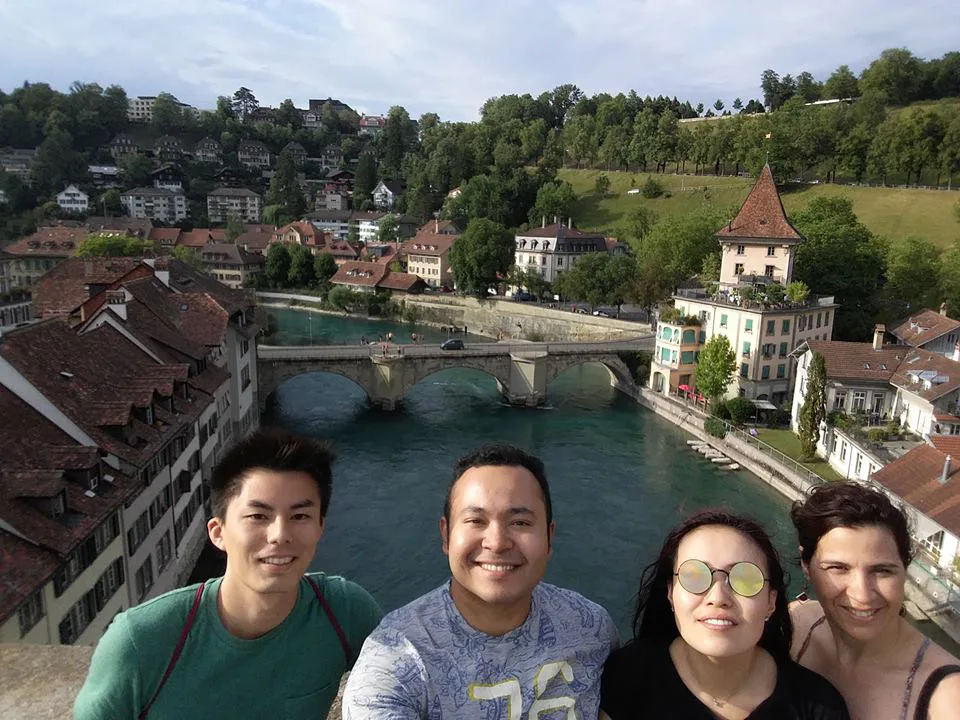
My plan in Geneva was to focus on my research during my first year and start looking for jobs
from year two as I completed my dissertation. I looked into various organizations considering
that there has been an increasing number of public-private partnerships to promote and protect
human rights. While I was looking for organizations that promote and protect human rights and
have potential career development, there were two other things I took into account - a strong
organizational leadership, and a mentor.
It was then that I found out about the public-private partnership funded by the Government of
Japan, Bill & Melinda Gates Foundation, Wellcome Trust, and companies from the private sector
called the GHIT Fund. Furthermore, as I was researching the GHIT Fund, I was impressed by its
governance structure, as well as Dr. Slingsby's strong leadership since the GHIT Fund's
inception and Dr. Katsuno's academic and professional experiences, which led to my decision to
apply for a position here.
I joined the Investment Strategy and Government Relations team of the GHIT Fund, where I work on
building relationships with our project’s product development partners and government-related
organizations. Working at the GHIT Fund is exciting because there is a new challenge every day,
which leads to new learnings.
One of the appealing aspects of working at the GHIT Fund is that anyone can suggest new
projects/initiatives. For example, I suggested that we form an internship program to provide new
opportunities for young professionals like myself. Moreover, there is a project called the “GHIT
Values Promotion Program”, which was established by members of the GHIT Fund Management Team
themselves and has been fundamental to building a strong team-minded culture. Being able to
contribute to the organization’s culture through this program is very rewarding.
Health is a right, not an option. This is a quote written on the GHIT Fund’s office wall,
which I remember reading during my first day of work. The GHIT Fund's investments aim for a
healthier world, meaning that it contributes to the promotion and protection of health, a
fundamental human right. The GHIT Fund entered its Phase II (2018-2022) this year, and the
Strategic Plan for the next five years was published. As one of the members of the GHIT Fund
Management Team, I would like to keep cooperating with every stakeholder to accomplish the
Strategic Plan and continue contributing to the promotion and protection of health, a
fundamental human right.
*This interview was conducted in August 2018.
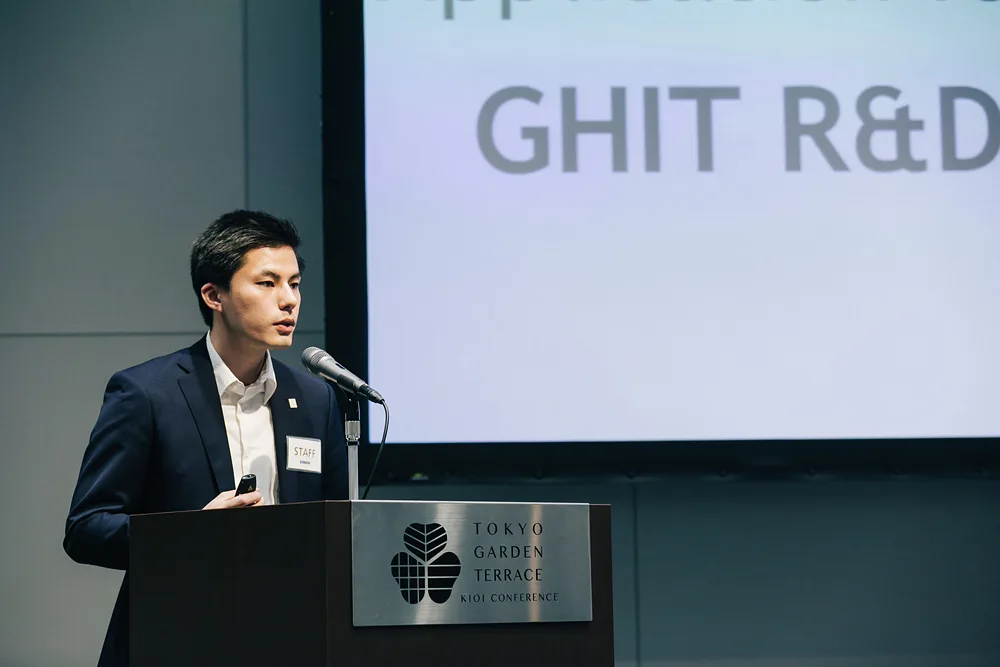
Investment Strategy & Government Relations
Hironobu Itabashi is Associate Manager of Investment Strategy & Government Relations at the GHIT Fund. He has worked as an intern at the United Nations High Commissioner for Refugees (UNHCR), IRIN Association, The Economist, The New York Times and the Foreign Correspondents' Club of Japan (FCCJ). Mr. Itabashi holds a master’s degree in International Affairs from the Graduate Institute of International and Development Studies (IHEID), Geneva. Prior to his graduate studies, he earned his bachelor’s degree from the School of International Liberal Studies at Waseda University and attended Paris-Sorbonne University (Paris IV) as an exchange student. He is a native speaker of Japanese and Spanish and fluent in English and French.
*Affiliation and position are as of the time of the interview.
